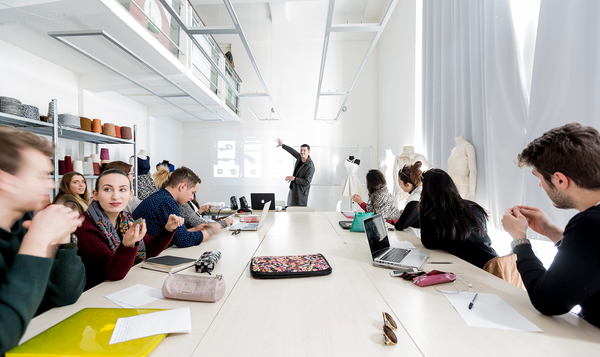Can you maximise productivity without compromising the quality of work and studies? Here’s how to promote balanced professional and academic development.

Work and study: tips for balancing work and study
Date
28 December 2023
Combining work and study can challenge those seeking successful educational outcomes and career goals. It is increasingly common among young people to strive for a balanced lifestyle that considers work demands and academic commitments while also considering personal, psychological and physical needs.
This comprehensive guide will provide helpful tips to help you maximise productivity without compromising the quality of your work and studies while ensuring balanced professional and academic growth.
Organizing your time: planning efficiently
Organising your time efficiently requires careful planning of work commitments, study sessions and breaks to keep your concentration high.
Dividing the day into blocks of time dedicated to specific activities can help create a clear boundary between work and university and avoid overlapping and stress.
Using special time management software or apps such as Wunderlist, Todoist, or Pushbullet can simplify daily planning, enabling you to keep track of your commitments and ensuring a clear and comprehensive view of your schedule.
The number of hours spent working or studying influences your ability to manage commitments. A part-time contract is preferable so you can equally distribute your time between work and study and have more flexibility.
Priorities and objectives: defining what is important
Considering the constraints of time and resources, the key to an effective work-study balance lies in the ability to set priorities and objectives, avoiding the dispersion of energy on less significant tasks.
Developing full awareness in these terms means recognising and separating realistic goals from unattainable ones to embark on a more straightforward and satisfying path.
This could mean focusing your attention on priority projects or urgent tasks within the work context. In contrast, it might entail prioritising subjects and courses in the academic environment.
Effective communication: sharing expectations with colleagues and lecturers
In a context where work and study coexist, open communication helps avoid misunderstandings and establishes realistic expectations based on a shared understanding of priorities and commitments.
Effective communication can help create positive relationships in both work and academic contexts, building a valuable human support network to calmly face the daily challenges these two essential spheres entail.
Study techniques and productivity: optimising learning time
Understanding which study method best suits your needs is crucial to achieving good results. Let’s look at practical tips to improve study techniques and speed learning.
- Time planning: this method allows you to create a detailed study plan divided into time blocks for each subject.
- Spaced repetition: this approach involves regularly reviewing key concepts at increasing intervals, thus helping to improve long-term memory.
- Active search: This method allows for creating flashcards, i.e., paper or electronic media, that contain information to memorise. Doing so makes it possible to rewrite and underline notes with different colours, strengthening visual memory and promoting long-term comprehension.
- Study environment: creating a well-organised and orderly environment can help reduce distractions and improve concentration.
- Smart study: this method consists of selecting the most essential materials to focus on and avoiding wasting valuable time.
- The progressive approach further breaks down complex topics into smaller passages to facilitate memorisation.
- Use of online resources: taking advantage of video tutorials, online courses, and interactive study materials allows you to vary your learning approach and helps keep your concentration high.
Stress management: strategies for coping with pressure
The combination of academic and professional commitments can often generate an excessive workload. Time pressures, for example, may accentuate stress levels, even causing anxiety and malaise, both physical and mental, resulting in loss of clarity.
Feeling stressed during busy periods is normal, but taking care of your mental health is as vital as overcoming academic and professional challenges.
Therefore, let’s see some strategies to avoid neglecting your well-being.
- Active breaks: Introducing short but regenerative breaks during the day can refresh your mind and reduce accumulated stress; stretching exercises, deep breathing, and short walks help keep the mind active by ranging between different activities.
- Self-care: focusing on sleep by ensuring sufficient rest allows the body and mind to regenerate. Incorporating exercise into the weekly routine and reserving time for pleasant and relaxing activities is essential to get through the day.
- Effective communication: communicating openly with colleagues and sharing workloads can reduce feelings of isolation and promote a collaborative working environment.
- Mental flexibility: adopting an open and flexible mindset allows you to deal with changes more calmly and develop the ability to adapt to unforeseen situations.
- Time management: prioritising tasks according to urgency and importance helps avoid feeling overwhelmed by excessive study and workload.
- Mindfulness and meditation: these practices help reduce stress and improve concentration. Even just a few minutes a day can make a difference.
Implementing these strategies can help maintain a healthy balance between work, study and personal life, promoting better mental health and reducing accumulated stress.
Rest moments: preserving personal well-being
Dedicating time to rest moments between commitments allows you to recharge your energy and face daily challenges with a more balanced and positive outlook. These moments can take different forms, from relaxing activities such as reading or meditation to social moments with friends and family.
Consciously dedicating time to relaxation is an investment in your health and helps ensure a more sustainable and rewarding approach to managing work and study.
IED offers various course proposals that are ideal for workers. Some training proposals include weekend or evening classes.
Contact us for more information.








